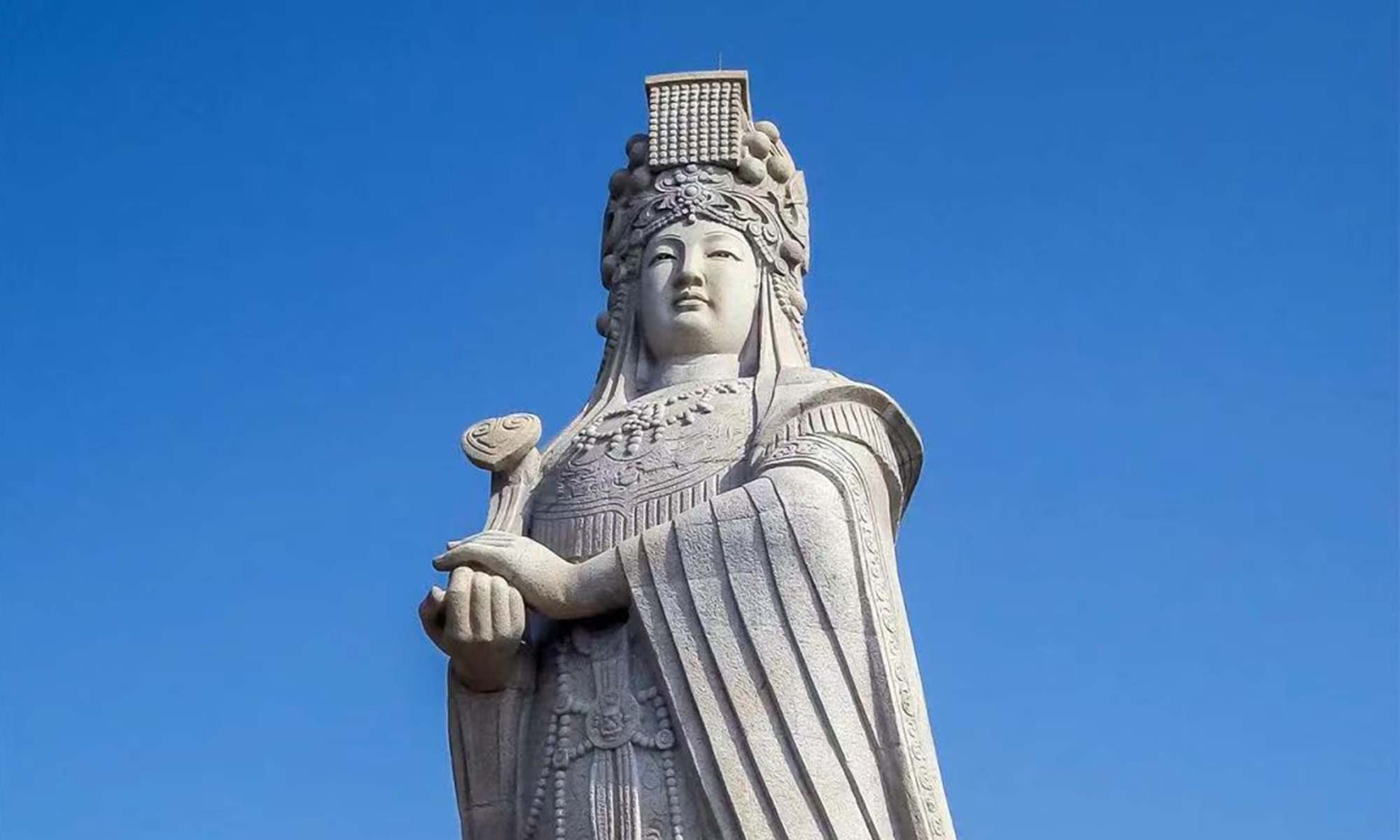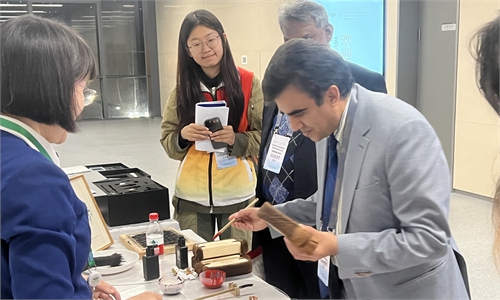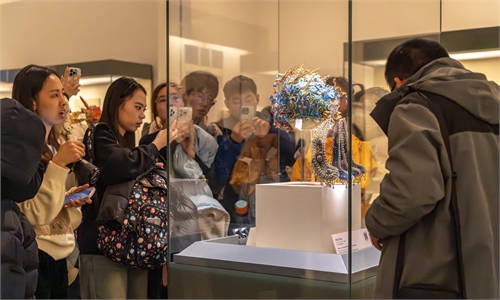ARTS / CULTURE & LEISURE
10th Intl Symposium on Mazu Culture kicks off
Focus on shared beliefs across Taiwan Straits

A Mazu statue on Meizhou Island, Fujian Province Photo: Courtesy of Meizhou Mazu Ancestral Temple
The Forum of Mazu's Great Love and Peace and the 10th International Symposium on Mazu Culture kicked off in Putian, East China's Fujian Province on Sunday with at least 150 attendees, including dozens of Taiwan compatriots in attendance. Scholars are discussing important topics on Mazu culture and the reasons why Mazu culture has gained even more powerful influence among overseas Chinese and around the globe after a decade of endeavor.
The forum and symposium set to run until Wednesday is hosting about 100 scholars who have published papers on Mazu culture, which has become an important part of fine traditional Chinese culture.
Under the theme of "new progress in research on Mazu culture from the perspective of regional and national studies," participants across the Taiwan Straits are talking about topics such as Mazu culture's overseas expansion, its role in a community with a shared future, and its regional influence as well as digital humanities communication.
As the most influential goddess of the sea in China, Mazu is believed to have lived in the 10th century on Meizhou Island in Putian, where she dedicated herself to helping her fellow townspeople and finally died when attempting to rescue the survivors of a shipwreck.
Residents built a temple in her honor and began to venerate her as a goddess.
Professor Chen Zhiping at Xiamen University, one of the keynote speakers, told the Global Times on Sunday that he will share his research on believers' customs in Mazu culture and their practice.
Chen said that the worldwide spread of Mazu culture also reflects Chinese culture's external transmission.
Chen summed up the two main paths of Chinese culture's overseas transmission: One is official, the other is at the grassroots level.
"Mazu culture, part of Chinese folk culture, has been growing in influence along with the expansion of overseas Chinese immigrants as well as China's internationalization. Mazu culture has become the most representative example of Chinese folk culture spreading overseas," Chen noted.
Because of Mazu culture, compatriots on both sides of the Taiwan Straits have an emotional, cultural and national identity bond, Lin Meng Jung, a resident of Taiwan island and a professor at Putian University told the Global Times.
After decades of spread and development of overseas, Mazu culture has established a powerful presence among overseas believers.
"These believers look forward to the opportunity to come to the birthplace of Mazu culture. Such visits allow them to feel the warmth and love of Mazu as well as familial affection," Yu Minghua, a professor at Putian University, told the Global Times.
In 2009, Mazu belief and customs were inscribed on the UNESCO Representative List of the Intangible Cultural Heritage of Humanity.
Yu said that each year the forum has been hosted, the academic research results have kept pace with Mazu belief and customs.
Over the past decade, Putian University has stepped up efforts to create a global academic platform for Mazu culture, Yang Minwei, vice president of the Mazu Cultural Research Institute, told the Global Times.
Based on folk customs, the institute is eyeing the links between research and industries. "Scholars' forward-looking thinking and top-level design are expected to develop new significance for Mazu culture in a digital business landscape," said Yang.
Going digital, new technologies represented by interactive 3D, XR, and AI are profoundly changing cultural communication and cultural tourism consumption related to Mazu culture.
Since the first International Symposium on Mazu Culture in 2015, participating scholars have conducted extensive and in-depth research on the importance of Mazu culture, including history, legends, documents, festivals, local relations, community relations, beliefs, standardization, and the cultural and creative industries.
"Each year, we have identified new elements in local characteristics, ritual influences, and new performances of beliefs and customs," said Yu.



